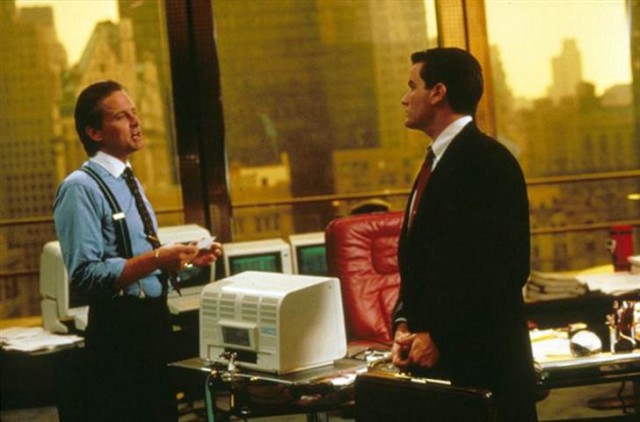We Need a New Kind of Financial Advice
by Joshua Michtom

I am not an avid reader of financial self-help books, but it is becoming apparent to me that we need a whole new approach to the genre. As Nicole’s breakdown of Rich Dad Poor Dad noted, most of the leading titles in the genre are selling essentially the same advice, albeit in packaging that varies the tone and target demographic: get enough money to live off investments. As Nicole also points out, that doesn’t work because most people can’t just get a bunch of money. (Perhaps the next installment in the Billfold Book Club will buck the trend.)
The unhappy state of the world, which this site has chronicled regularly over time, is that things are not getting better for the poor or the middle class. The vast majority of us, try as we might, are not going to be the Rich Dad, living off passive income while some hapless schlubs labor for our cigar-smoking benefit. We are going to be the schlubs. We need financial literature that recognizes this. We don’t need advice on how to be rich and idle. We need concrete tips for effectively treading water.
I got to thinking about this yesterday, when news broke here in my benighted city of Hartford, Connecticut (poverty rate, 38%), that the mayor had negotiated a deal to build a stadium in our long-suffering downtown in order to lure a AA baseball team from another impoverished city 13 miles away, at a cost of between $60 and $100 million. The theory, of course, is that this new edifice to sport will drive downtown development, boost our local economy, and increase tax revenues. The problem with that theory is that it has been tested by thirty years of stadium construction and economic analysis, and it is absolutely completely wrong. What’s crazy is that we’ve pretty much known that stadiums don’t drive economic development for decades, but somehow, mayors and city councils keep trying, much to the delight of team owners.
What occurred to me is that the government of my poor city is behaving just like its poor residents do: operating in a system rife with constraints, it is making a terrible investment with minuscule long-term prospects and an enormous chance of making everything worse. Working people with no money on hand do this when they take out payday loans at exorbitant interest rates (like, 400%). People with no job prospects do this when they get into drug dealing, for which the starting pay is less than minimum wage and the risks are high. People who have housing and jobs but can’t raise the money to furnish their homes pay absurd amounts of money for furniture from rent-to-own stores. Would-be entrepreneurs sink deep into credit card debt to finance businesses, or even just to present the facade of success that they believe is necessary to attain it. Further up the ladder, people with jobs and modest savings who live in redlined areas undertake terrible mortgage terms in the hopes of owning a home and rising solidly to middle class stability. At the top, poor cities themselves, dependent on state governments for funding and hamstrung by vast tracts of untaxable land (providing hospitals and universities for surrounding suburbs), roll the dice on “downtown catalysts” that never catalyze.
At every level of privation, there’s an enterprise carefully calibrated to sell hope and extract profit (stupid capitalism!). Apparently, this has more than a little to do with the way that the stress of possible financial hardship makes our brains work (stupid neuroscience!). So we need economic self-help literature that concedes that we’ll never be rich, or probably even so secure that a serious illness won’t bankrupt us, and focuses solely on helping us avoid temptations that will certainly ruin us.
The closest thing to this kind of advice that I know of is Mr. Money Mustache, the nom de blog of a semi-anonymous software engineer in Colorado who preaches a gospel of austerity and assiduous saving. But as our own Mike Dang has pointed out, not all of us are wasteful:
[I]t’s a myth that the typical middle class life is an “exploding volcano of wastefulness” and that “everyone always chooses the expensive ones and then complains that life is hard these days”. This is the myth that’s driving and funding the personal finance industrial complex.
…
[T]he majority of people I know aren’t wildly irresponsible. They’re not buying luxury cars and designer clothing and $5 lattes every day (ah, the latte factor! — every personal finance guru’s favorite example). They’re dealing with shrinking salaries, skyrocketing health care and education costs, a weak economy that has resulted in job loss.
So, dear readers, I ask you: is there any writing out there to guide us through permanent austerity punctuated with highly refined predation? Leaves of Grass comes to mind, but after that, I got nothing.
Support The Billfold
The Billfold continues to exist thanks to support from our readers. Help us continue to do our work by making a monthly pledge on Patreon or a one-time-only contribution through PayPal.
Comments